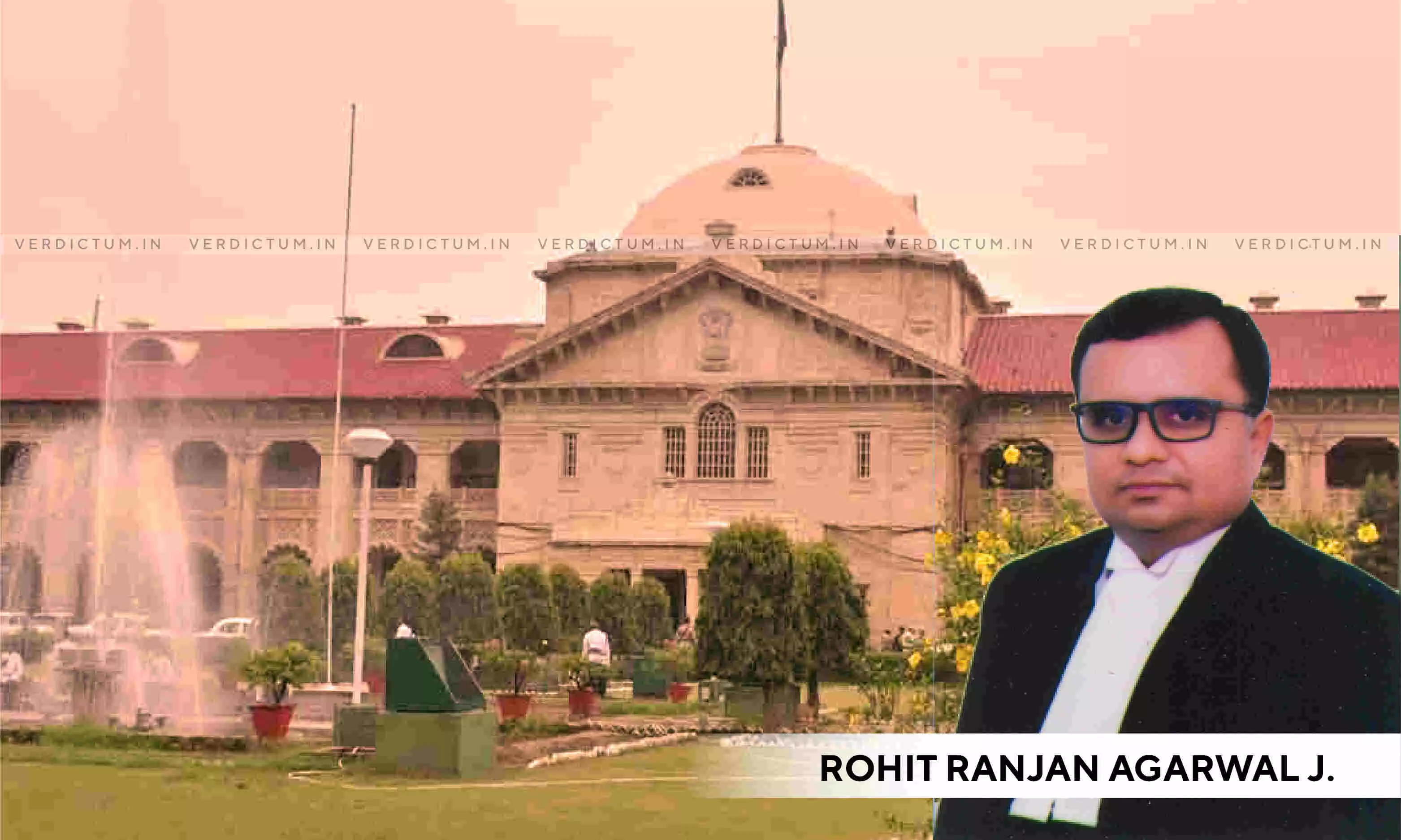
Right To Freedom Of Religion Cannot Be Extended To Construe A Collective Right To Proselytize: Allahabad HC
 |
|The Allahabad High Court observed that the individual right to freedom of religion cannot be extended to construe a collective right to proselytize.
The Court observed thus in a criminal bail application filed by an accused who was allegedly involved in a case under Sections 3 and 5(1) of the Uttar Pradesh Prohibition of Unlawful Conversion of Religion Act, 2021.
A Single Bench of Justice Rohit Ranjan Agarwal remarked, “The Constitution confers on each individual the fundamental right to profess, practice and propagate his religion. However, the individual right to freedom of conscience and religion cannot be extended to construe a collective right to proselytize; the right to religious freedom belongs equally to the person converting and the individual sought to be converted.”
The Bench said that the Constitution clearly envisages and permits its citizens right to freedom of religion in respect to their professing, practising and propagating its religion but it does not allow or permit any citizen to convert any citizen from one religion to another religion.
Advocate Sanju Lata appeared on behalf of the applicant/accused while AGA Sunil Kumar appeared on behalf of the opposite party/State.
In this case, the informant was invited to the house of co-accused where he saw that many people of village were there and most of them belonged to Scheduled Castes community. Along with the co-accused, his brother, the applicant/accused and another person were present. He was asked to leave Hindu religion and accept Christianity and was told that once he accepts Christianity, all his pain would come to an end and he would progress in life. Some of the villagers on such assurance accepted Christianity and started praying.
The informant after making an excuse, ran away and informed the police. The counsel for the applicant submitted before the Court that no person who accepted Christianity, came forward to make any complaint. On the other hand, the AGA for the State submitted that mass conversion was going on and the applicant came to the place Maharajganj where the conversion was taking place and was actively participating in the same.
The High Court after hearing the contentions of the counsel for the parties noted, “The Constitution of India guarantees religious freedom to all persons which reflects the social harmony and spirit of India. The objective of this right is to sustain the spirit of secularism in India. According to the Constitution, State has no religion and all religions are equal before the State, and no religion shall be given preference over the other. All the persons are free to preach, practice and propagate any religion of their choice.”
The Court further said that Section 3 of 2021 Act clearly prohibits conversion from one religion to another religion on the basis of misrepresentation, force, fraud, undue influence, coercion and allurement and provides for punishment for contravention of provisions of the Section which also restricts a person not to abet, convince or conspire such conversion.
“The Act of 2021 was enacted keeping in view the above constitutional provision for prohibiting of unlawful conversion from one religion to another. … In the instant case, the informant was invited by the co-accused, Vishwanath to his house on 15.02.2024 for attending a programme where it was found by the informant that number of villagers had gathered, mostly belonging to Scheduled Castes community who were being allured and misrepresented to convert to Christianity leaving their religion on the premise that their pain and sorrow will come to an end, and they will progress in life. Some of the villagers on the assurance had accepted Christianity, while the informant ran away from the programme and informed the Police in writing”, it also noted.
The Court observed that during the investigation, the Police had recorded statement of independent witnesses which was brought on record by State through counter affidavit which clearly reveals that such function was held in which the conversion was taking place.
“The argument raised from the applicant side that there was no Religion Convertor present when the conversion was taking place is of no help as Section 2(i) only defines “Religion Convertor”. The Act does not provide that a Religion Convertor should be present when the conversion is taking place. … In the instant case, the informant was persuaded to convert to another religion, which is prima facie sufficient to decline bail to the applicant as it establishes that a conversion programme was going on where many villagers belonging to Scheduled Castes community were being converted from Hindu religion to Christianity”, it enunciated.
The Court, therefore, concluded that there arises no occasion as to why the informant would rope in the applicant, who is a resident of Andhra Pradesh, falsely in a case of unlawful religion conversion and neither in the bail application nor during argument, it has been submitted that there stood any enmity between the informant and the applicant.
Accordingly, the High Court rejected bail application of the accused.
Cause Title- Shriniwas Rav Nayak v. State of U.P. (Neutral Citation: 2024:AHC:111441)
Appearance:
Applicant: Advocates Sanju Lata, Patsy David, and Saurabh Pandey.
Opposite Party: AGA Sunil Kumar